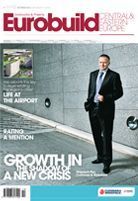The stock exchanges are sky-diving; the bankruptcy of Greece is still possible. The global economy has still not managed to breathe freely after the crash of 2008 and many believe that we are about to be hit by another global recession. However, the investment market in Poland is picking up momentum
Despite the global economic downturn, we have some good news: the investment market in the CEE region (particularly in Poland and the Czech Republic) has so far been resilient despite the prospect of a new global crisis. "The possible bankruptcy of Greece has not upset the markets. After the collapse of Lehman Brothers in September 2008 everything froze. Now, however, the situation on the global markets is not triggering the same sort of panic among funds investing in properties. So far no transactions have been suspended and nothing suggests that this will change," argues Wojciech Pisz, head of the capital markets group at Cushman & Wakefield. He goes on to add that Poland is in a particu




























































